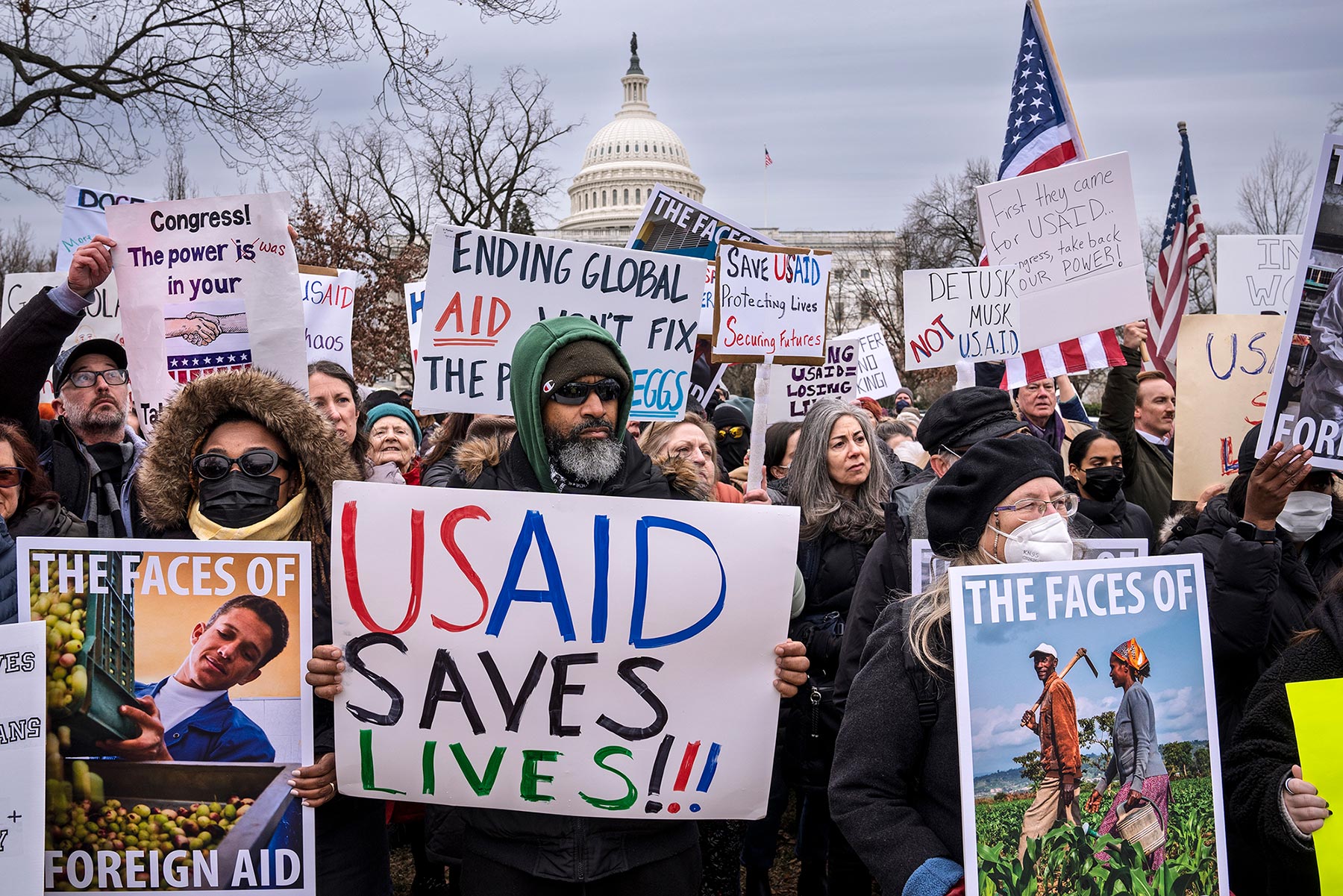Since U.S. President Donald Trump announced his plan to dismantle USAID and imposed a 90-day freeze on nearly all foreign aid, US-funded assistance efforts worldwide have largely come to a halt. The effects of this will be extensive and felt globally. Among those affected are Buddhist countries, communities, and refugees.
USAID, or the United States Agency for International Development, is an independent agency of the U.S. government that primarily administers foreign aid and developmental assistance to countries in need. Since its founding in 1961, USAID has been instrumental in humanitarian efforts worldwide.
In countries like Nepal, USAID has played a crucial role in supporting various development projects. The aid freeze has resulted in the suspension of welfare initiatives in areas such as health, agriculture, education, and policy development, among others. As noted by Nepal News,
According to the Ministry of Finance’s 2022 Development Cooperation Report, the US has been the largest bilateral donor to Nepal. These projects, running since 2011, include both government-run and non-governmental organization (NGO)-run initiatives. They encompass cash grants, technical assistance, and in-kind aid, all of which have been impacted by Trump’s new executive order. The sectors most affected include 12 health programs, 10 in agriculture and forestry, 7 in family and child welfare, and 6 each in education and economic affairs. A total of 67 projects/programs, which are off-budget and implemented by NGOs, INGOs, and some government agencies, are now suspended.
One community that could be hit the hardest is the Tibetan population in exile, since the aid suspension disrupts key programs that support it. USAID has historically funded programs that assist Tibetan refugees, including initiatives focused on education, healthcare, and cultural preservation. With the agency’s closure, these programs face an uncertain future, leaving many Tibetans, especially those dependent on U.S. assistance, in a precarious position.
According to Tibetan news organization Phayul,
The decision to halt USAID operations has raised serious concerns within the Tibetan exile community, as U.S. foreign assistance has been a major source of finance in sustaining various Tibetan programs through the Central Tibetan Administration (CTA) and other NGOs. Last year the United States granted $23 million to support Tibetan programs.
Two months ago, on November 25, 2024, the USAID in collaboration with The Tibet Fund and CTA, announced a new program to support Tibetan communities in India and Nepal. This five-year initiative, titled “Strengthening Economic, Social, and Cultural Resilience of Tibetan Communities in South Asia,” was designed to enhance self-reliance and cultural preservation.<END BLOCK>”
The decision to dismantle USAID, and the current 90-day freeze on foreign aid, put the 23 million dollar grant, as well as other initiatives aimed at supporting the Tibetan community in exile, in jeopardy.
Bhutan is also among the countries affected by this decision. USAID has provided foreign assistance to Bhutan in areas such as health, education, agriculture, and infrastructure, among others. The energy sector may also be impacted in Bhutan, according to the Asian News Network,
In the energy sector, Bhutan is part of the South Asia Regional Initiative for Energy Integration and South Asia Regional Energy Partnership—both USAID-funded programmes aimed at improving cross-border electricity trade and clean energy access, and enhanced market practices.
The health sector could also be affected, as Bhutan benefits from USAID programs in disaster management training and various health initiatives, including nutrition programs and vaccinations.
In Thailand, medical treatment for displaced people from Maynmar is being directly affected. According to Thai media, medical aid in refugee camps, where about 2900 people live, has now stopped since these programs were largely funded by USAID.
Some camps have “stopped functioning,” said the doctor, who said that some patients have been transferred to Thai hospitals, though most returned home. Some critically ill patients also remain in the camps.
The halt in USAID operations has triggered widespread concern across various regions and communities. In many cases, the consequences of the current freeze on foreign aid are a matter of life or death, as many life-saving programs depend on the funding provided by USAID.
China is rapidly filling the financial gap left by the lack of aid from USAID globally, especially in the Global South. In Nepal, according to The Annapurna Express, Chinese officials have already indicated to the Nepalese government that “Beijing is prepared to provide support if critical areas in Nepal are affected by US President Donald Trump’s executive order.” Reducing foreign aid from the United States provides China with a significant opportunity to increase its influence in Nepal, where it has already been gradually expanding assistance in key areas such as disaster relief, health, agriculture, and infrastructure. This aids China as it competes for influence with India in Nepal, a country of strategic importance to both.

